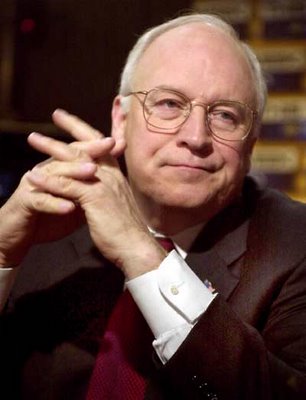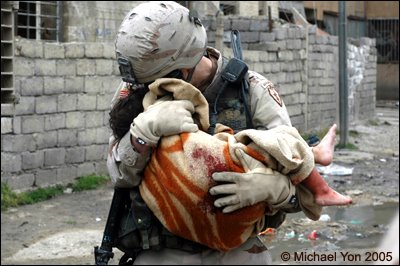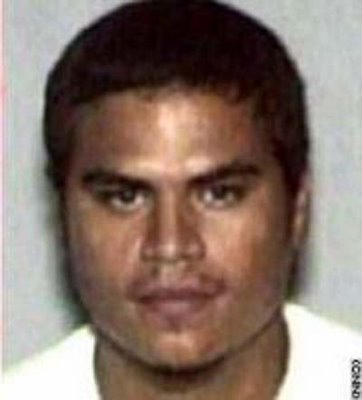In a recent posting (Perhaps The Most Important Question of Our Age), I said our war on terrorism is directed only at the relatively small number of the world-wide Muslims that are Islamofascists – those who want to use any means to advance the spread of militant Islam, and I said that most Muslims want nothing to do with this movement to conquer the world by violent means. I also complained that these peaceful Muslims are making me uneasy by their silence and their absence in this struggle.
Today I want to present two items: first, a group of Muslim and ex-Muslim intellectuals has issued a manifesto condemning Islamofascism, and I think this may be an important development and the kind of thing I have been looking for. It is presented below. Immediately after the manifesto I am publishing here an article that rebuts my views on this by someone who thinks we must regard all Muslims as deadly enemies.
First the manifesto:
MANIFESTO:
Together facing the new totalitarianism
After having overcome fascism, Nazism, and Stalinism, the world now faces a new totalitarian global threat: Islamism.
We, writers, journalists, intellectuals, call for resistance to religious totalitarianism and for the promotion of freedom, equal opportunity and secular values for all.
The recent events, which occurred after the publication of drawings of Muhammed in European newspapers, have revealed the necessity of the struggle for these universal values. This struggle will not be won by arms, but in the ideological field. It is not a clash of civilisations nor an antagonism of West and East that we are witnessing, but a global struggle that confronts democrats and theocrats.
Like all totalitarianisms, Islamism is nurtured by fears and frustrations. The hate preachers bet on these feelings in order to form battalions destined to impose a liberticidal and unegalitarian world. But we clearly and firmly state: nothing, not even despair, justifies the choice of obscurantism, totalitarianism and hatred.
Islamism is a reactionary ideology which kills equality, freedom and secularism wherever it is present. Its success can only lead to a world of domination: man’s domination of woman, the Islamists’ domination of all the others. To counter this, we must assure universal rights to oppressed or discriminated people.
We reject « cultural relativism », which consists in accepting that men and women of Muslim culture should be deprived of the right to equality, freedom and secular values in the name of respect for cultures and traditions. We refuse to renounce our critical spirit out of fear of being accused of "Islamophobia", an unfortunate concept which confuses criticism of Islam as a religion with stigmatisation of its believers.
We plead for the universality of freedom of expression, so that a critical spirit may be exercised on all continents, against all abuses and all dogmas.
We appeal to democrats and free spirits of all countries that our century should be one of Enlightenment, not of obscurantism.
12 signatures
Ayaan Hirsi Ali
Chahla Chafiq
Caroline Fourest
Bernard-Henri Lévy
Irshad Manji
Mehdi Mozaffari
Maryam Namazie
Taslima Nasreen
Salman Rushdie
Antoine Sfeir
Philippe Val
Ibn Warraq
Presentations:
Ayaan Hirsi Ali
Ayaan Hirsi Ali, from somilian origin, is member of Dutch parliement, member of the liberal party VVD. Writter of the film Submission which caused the assasination of Theo Van Gogh by an islamist in november 2004, she lives under police protection.
Chahla Chafiq
Chahla Chafiq, writer from iranian origin, exiled in France is a novelist and an essayist. She’s the author of "Le nouvel homme islamiste , la prison politique en Iran " (2002). She also wrote novels such as "Chemins et brouillard" (2005).
Caroline Fourest
Essayist, editor in chief of Prochoix (a review who defend liberties against dogmatic and integrist ideologies), author of several reference books on « laicité » and fanatism : Tirs Croisés : la laïcité à l’épreuve des intégrismes juif, chrétien et musulman (with Fiammetta Venner), Frère Tariq : discours, stratégie et méthode de Tariq Ramadan, et la Tentation obscurantiste (Grasset, 2005). She receieved the National prize of laicité in 2005.
Bernard-Henri Lévy
French philosoph, born in Algeria, engaged against all the XXth century « ism » (Fascism, antisemitism, totalitarism, terrorism), he is the author of La Barbarie à visage humain, L’Idéologie française, La Pureté dangereuse, and more recently American Vertigo.
Irshad Manji
Irshad Manji is a Fellow at Yale University and the internationally best-selling author of "The Trouble with Islam Today: A Muslim’s Call for Reform in Her Faith" (en francais: "Musulmane Mais Libre"). She speaks out for free expression based on the Koran itself. Née en Ouganda, elle a fui ce pays avec sa famille musulmane d’origine indienne à l’âge de quatre ans et vit maintenant au Canada, où ses émissions et ses livres connaissent un énorme succès.
Mehdi Mozaffari
Mehdi Mozaffari, professor from iranian origin and exiled in Denmark, is the author of several articles and books on islam and islamism such as : Authority in Islam: From Muhammad to Khomeini, Fatwa: Violence and Discourtesy and Glaobalization and Civilizations.
Maryam Namazie
Writer, TV International English producer; Director of the Worker-communist Party of Iran’s International Relations; and 2005 winner of the National Secular Society’s Secularist of the Year award.
Taslima Nasreen
Taslima Nasreen is born in Bangladesh. Doctor, her positions defending women and minorities brought her in trouble with a comittee of integrist called « Destroy Taslima » and to be persecuted as « apostate »
Salman Rushdie
Salman Rushdie is the author of nine novels, including Midnight’s Children, The Satanic Verses and, most recently, Shalimar the Clown. He has received many literary awards, including the Booker Prize, the Whitbread Prize for Best Novel, Germany’s Author of the Year Award, the European Union’s Aristeion Prize, the Budapest Grand Prize for Literature, the Premio Mantova, and the Austrian State Prize for European Literature. He is a Commandeur of the Ordre des Arts et Lettres, an Honorary Professor in the Humanities at M.I.T., and the president of PEN American Center. His books have been translated into over 40 languages.
Philippe Val
Director of publication of Charlie Hebdo (Leftwing french newspaper who have republished the cartoons on the prophet Muhammad by solidarity with the danish citizens targeted by islamists).
Ibn Warraq
Ibn Warraq , author notably of Why I am Not a Muslim ; Leaving Islam : Apostates Speak Out ; and The Origins of the Koran , is at present Research Fellow at a New York Institute conducting philological and historical research into the Origins of Islam and its Holy Book.
Antoine Sfeir
Born in Lebanon, christian, Antoine Sfeir choosed french nationality to live in an universalist and « laïc » (real secular) country. He is the director of Les cahiers de l’Orient and has published several reference books on islamism such as Les réseaux d’Allah (2001) et Liberté, égalité, Islam : la République face au communautarisme (2005).
The following piece is an excellent rebuttal of the idea that most Muslims do not support the terrorists. I reject the thoughts expressed in this article, but I understand its logic and appeal.
March 1, 2006
Absolute Certainty
By Bruce Thornton
Coming hard upon the heels of the cartoon riots and the election of the Hamas terrorists, the destruction of the Shi’ite mosque of the Golden Dome in Samarra by Sunni jihadists, and the subsequent Shi’ite bloody retaliation, should put to rest Western delusions about the true nature of Islam. But don’t hold your breath. Such displays of Islam’s violent intolerance have been coming thick and fast the last few decades, and can be found on every page of history going back to the 7th century, when Islam began its expansion with the blood of several hundred decapitated Jews.
Yet still some Westerners, enthralled to their own materialist assumptions and multicultural “we are the world” sentimentalism, wave away this evidence and reduce this destructive behavior to any and every cause except the one that counts: spiritual belief. So we hear that the violence is caused by a lack of jobs, or a lack of liberal-democratic institutions, or “frustration” and insecurity about the dismal backwardness of most Muslim states, or wounded pride in the face of Western success, or resentment of Western imperialist and colonialist sins, or oppressive autocrats, or . . . take your pick. The same therapeutic mentality that thinks destructive behavior in teens results from a “lack of self-esteem” reduces the religious values of Muslims to mere “epiphenomena,” as the Marxists see it, symptoms of some underlying condition rooted in material deprivation, political impotence, or psychological trauma.
The problem with Islam, however, is not a lack of self-esteem but too damned much. This is a faith fanatically certain of its truth and righteousness, the culminating vision of God’s relations with humanity, the ultimate meaning of human existence on every level, including the social and political. As such, its destiny is to spread over the whole world until the benefits, both in this life and the next, of submission to God are bestowed on all humans, and the dysfunctional man-made values–– including democracy, materialism, “equal rights,” and freedom–– are swept away. For however alluring, these do not deliver true happiness or true freedom, but mere hedonism and license that create misery and degradation in this world, and put the soul at risk in the next.
If, then, you are in possession of this truth that you are absolutely certain holds the key to universal happiness in this world and the next, why would you be tolerant of alternatives? Why should you tolerate a dangerous lie? Why should you “live and let live,” the credo of the spiritually moribund who stand for everything because they stand for nothing? And why wouldn’t you kill in the name of this vision, when the infidel nations work against God’s will and his beneficent intentions for the human race?
This is precisely what the jihadists tell us, what fourteen centuries of Islamic theology and jurisprudence tell us, what the Koran and Hadith tell us. Yet we smug Westerners, so certain of our own superior knowledge that human life is really about genes or neuroses or politics or nutrition, condescendingly look down on the true believer. Patronizing him like a child, we tell him that he doesn’t know that his own faith has been “hijacked” by “fundamentalists” who manipulate his ignorance, that what he thinks he knows about his faith is a delusion, and that the true explanation is one that we advanced, sophisticated Westerners understand while the believer remains mired in superstition and neurotic fantasy.
And of course, it doesn’t help that the Westernized Islamic apologists and propagandists, having taken the measure of the West’s own superstition and fantasy, speak in our terms and manipulate our materialist causes. So we hear that Western support of autocrats is really to blame for terrorist discontent — but overthrowing Saddam Hussein, one of the most brutal murderers of Muslims ever, and creating for the Iraqi people an inclusive, law-based government, earn us absolutely nothing other than more hatred and murder. Ah, but the neo-colonialist Zionists are responsible, we are told. Yet billions of Western dollars given to the Palestinian Arabs, decades of obsessive, fawning attention on the part of the Western media and the U.N. even as millions have suffered and died elsewhere, have not moved us one inch closer to resolving the crisis or removing the existential threat to Israel. Give us jobs, we are told, an excuse echoed recently by Thomas Friedman, and we will be happy. Yet the terrorists in the main are not poor or dispossessed. Their leaders are billionaires, surgeons, engineers, and the college educated. But the West disrespects Islam, they cry, all the while our apologetic gestures of admiration for Islam do not stop the persecution and murder of Christians, do not elicit reciprocal apologies for the vile insults to Judaism that appear in state-run media throughout the Muslim world.
Meanwhile, all our attempts to bolster Muslim self-esteem, our desperate protestations of respect for their wonderful religion, our groveling apologies for exercising our own rights and values, our donning of the hair-shirt of racist, colonialist, or imperialist guilt, do nothing more than convince the jihadist that his spiritual superiority is justified. He looks at our appeasement, our fear, our rationalizations, our self-doubt, our unwillingness to defend the values we preach to the world, and sees the craven inferiority of the dhimmi, the conquered infidel who must acknowledge by his public actions the superiority of Islam, and who must pay the jizya, the “poll tax” that purchases his trembling security. Only we call the poll tax “foreign aid” or “welfare payments,” and the gestures of submission “respect for diversity.” We think our submission buys us affection and gratitude and respect for our interests, but in fact it purchases nothing except more contempt for our spiritual bankruptcy, more scorn for our belief that money and material comfort trump spiritual truth.
The true measure of our failure adequately to respect spiritual motives can be taken from the Bush administration’s steadfast refusal to put the crisis with Islam in these terms. The materialist left, of course, has been taught by Freud and Marx that religion is an “illusion,” so obviously we can’t expect them to grasp how powerfully spiritual imperatives can move people. But when a self-proclaimed born-again Christian either can’t or won’t see the clash of spiritual goods underlying the conflict, then we know how thoroughly the materialists have done their work of marginalizing religion in the West.
Perhaps the best example of this contempt for our spiritual foundations came when the President apologized for using the word “Crusade.” The demonization of the Crusades is a historical distortion that acquiesces in the jihadist rewriting of history in order to exploit Western self-loathing and spiritual emptiness. Whatever the sordid or brutal motives and actions of the Crusaders, they were still for the most part driven by a spiritual imperative to restore the Holy Land to the Christian civilization that had defined the Middle East for six centuries before being violently transformed by the armies of Allah. For the most aggressively imperialistic culture in the history of the world to whine now about Western imperialism — and be taken seriously by Westerners — testifies to the intellectual corruption endemic in the West.
If we continue down this road of appeasement, apology, and blackmail, then our outlook is indeed grim. A culturally weaker and ruder Europe turned back the Islamic tide because it was united by its Christian faith, the spiritual strength of all those before us who died and killed so that this prosperous, free world we enjoy could exist. But what unites the West now, when our credo seems to be that juvenile sentiment from John Lennon’s “Imagine”: “Nothing to kill or die for, and no religion too”? Is this the belief that can resist an enemy who knows with absolute certainty what is worth killing and dying for?


















